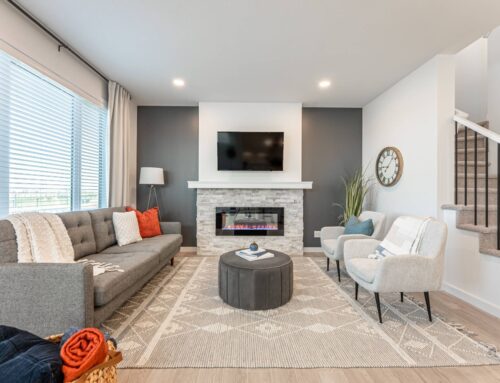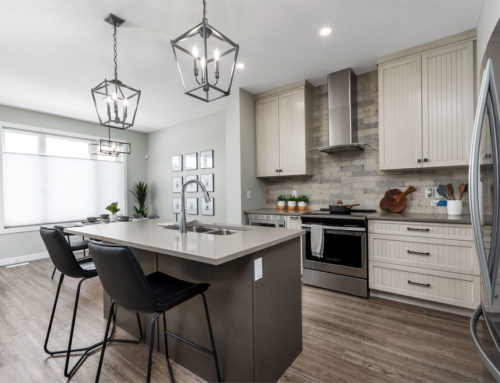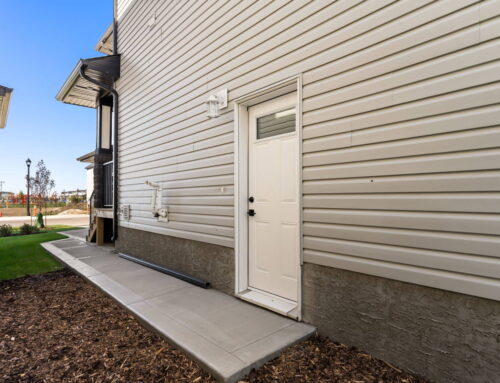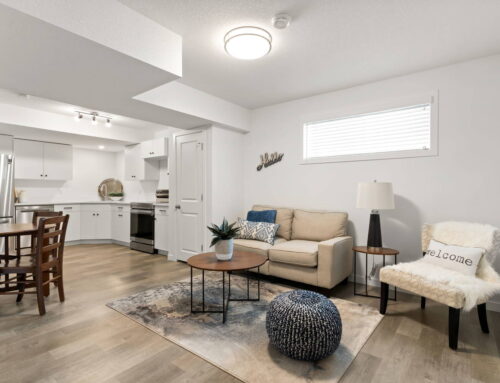
Are you considering buying your first home?
Congratulations! While this is a hugely exciting time, we understand it can be a challenge to figure out where to go from here. We’re here to help! Our handy guide includes a ton of helpful information to assist you through the first-time home-buying process.
Armed with this knowledge, you’ll be able to move forward with confidence, knowing your dream home is just around the corner.
Making The Decision To Buy
If you’ve been renting for a while, you’re probably already aware there are huge advantages that come with owning instead. Not only is the home completely yours, but you’ll be able to personalize it any way you want (no more asking permission).
There would be no rising rental costs, and you know you’ll finally be able to build your own equity instead of someone else’s.
Knowing What You Can Afford
Everyone wants their mortgage to be affordable without having to sacrifice their lifestyle. The key is to know what you can afford before you even start your search. An excellent resource for calculating what you can afford is an online mortgage affordability calculator. This tool takes into account all your costs, including living expenses and debt payments.

If you’re finding yourself coming up a little short, consider what you need to do to reach your new homeowner goals. This means thinking hard about what’s important. If you keep a tightly written budget to follow, it can make it much easier to save up for that downpayment.
Sell things you no longer use, consider a part-time gig, or even consider taking in roommates once you purchase your new home. Renting out a room or a basement suite can lower what you pay into your mortgage to the point of nearly nothing coming from your own pocket.
Coming Up With Your Down Payment
Your down payment is how much you’re willing to contribute to the overall total of your home in agreement with a lender. If you make the minimum down payment (5%), you’ll end up paying more due to the added cost of mortgage insurance (this is mandatory for any down payment less than 20%), so try to put down as much as possible.
Putting more money down can also make you appear much more serious about paying back your loan. For example, let’s assume you have some credit card debt or a car loan. If you invest more in your down payment upfront, the lender may ignore these few shortcomings (although you should pay off as much debt as possible beforehand).
Explore First Time Homebuyer Programs
Saskatchewan offers various programs and incentives to help first-time homebuyers. These can include tax credits, down payment assistance, and grants. Research these programs to see if you qualify and how they can benefit you.
Getting Pre-Approved
To obtain a pre-approval, your desired lender will evaluate your finances and credit score. They will then give you a certificate pre-approving you for a mortgage. In short, a pre-approval is the lender’s commitment to loaning you these funds so you can go forward in your house hunting.
Getting a pre-approval is important for a couple of reasons:
- It locks in your mortgage rate until you close the deal on your new home.
- You’ll be taken more seriously when it comes to putting an offer on a home. (In fact, it’s not uncommon for buyers without a pre-approval to have their offers overlooked).
- It gives you some perspective on how much you can afford.
One thing to note, any changes in your job, or investments can change your pre-approval – meaning it would have to be re-evaluated in the case of any major adjustments to your finances.
How Much Do You Want To Spend (really)?

One of the largest mistakes new homebuyers make is using everything they were pre-approved for. That is to say, just because you were pre-approved for $500,000, doesn’t mean you should use the full amount. Overspending can easily result in becoming house-poor; where you’ll spend the majority of your income on your mortgage and little else.
In fact, the government states that homeowners should pay no more than 32% of their monthly income or monthly housing costs.
That being said, location also plays a big part in how much home you can afford. This is because home prices vary depending on how far out of the city you are and what type of home you’re looking for.
Narrowing It Down
When it comes to choosing the best community in which to start looking, there are a few things you’ll want to consider other than just the home styles available.
Consider the following when trying to zero in on your new neighborhood: the commute. When you’re looking into prospective neighborhoods to call home, be sure to consider your commute time.
With the variety of new communities available in Saskatoon and Regina, you’re sure to find a number of convenient options.
Everything Else
Other amenities you’ll want to look for include everything from shopping, restaurants, entertainment, and green spaces, to important services like hospitals, dentists, and police stations. Having shopping nearby makes life simpler because you won’t have to go far for anything you need. Restaurants and entertainment are important too, whether it’s to meet your friends for dinner or take the kids out to a movie.
Those who enjoy an active lifestyle will also want to choose a community with walking paths and parks for morning jogs and dog walks, or parks and playgrounds for afternoon picnics and playdates. These are all things to keep in mind when buying a home. Being in a newly developed area that has all these amenities for you to enjoy makes all the difference.
When it comes to buying your first home, we guarantee the journey ahead will be fun, exciting, and simple if you’re equipped with the right information. Keep our handy guide in mind throughout the process and, not only will you find the home of your dreams, you’ll be amazed at just how easy it was!




